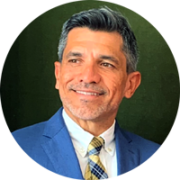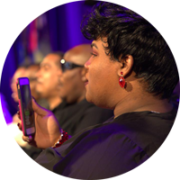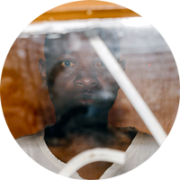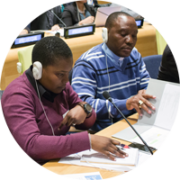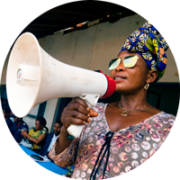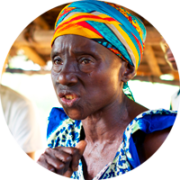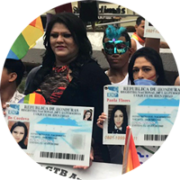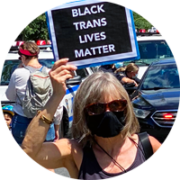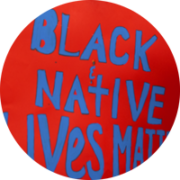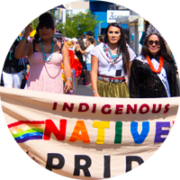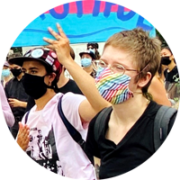In October 2020 I am to speak for 15 minutes to the 75th General Assembly of the United Nations about the harrowing human, social, and financial costs of COVID-19 to LGTB lives; the imperative of prompt and decisive state action to prevent further damage; and the importance of sustained support to the extraordinary global movement that works to support these communities and protect their rights.
I will deliver the presentation on a video and audio feed, in the absence of all of the familiar structures and routines that have made the Interactive Dialogue in New York, like its twin, the Human Rights Council in Geneva, flagships in carrying out the political action of the mandate I have held since 2018: Independent Expert on Violence and Discrimination based on Sexual Orientation and Gender Identity.
This year’s cyberspace gathering of 193 member states renders obsolete the usual duty of an early arrival at the Secretariat’s General Assembly Hall—to read tensions in the room, to convey to a detractor from the mandate a best practice from a more supportive state, to engage in a week of bilateral meetings, and to participate in side events where civil society presents evidence amassed during the year.
In today’s world, we have no choice but to accept this next best thing to physical interaction. But as humankind continues to fall through the rabbit hole into what we suspect will be a new world order, the real question is whether what we have come to accept as next best will ever come close to being good enough. In other words, can we realistically defend human rights from a global perspective in a COVID-19 world?
This Moment Demands Conviction and Discipline
On March 27, 2020, perplexed by the progress of the illness and without a comprehensive plan to face a pandemic, I wrote to the global LGTB movement in an open letter: “I, for one, believe that this moment demands the type of conviction and discipline that I know the LGTB movement(s) can deploy, because I have seen them deployed time and time again. I also believe that our strength and tenacity, and our capacity for kindness and compassion, will be among our unique contributions to the manner in which this great adversity will be met.” I invited our movements to work together to increase our understanding of how the crisis will affect our communities and peoples.
The response, first by civil society and then also by states, was proof of the capacities and determination to which I had made reference. Throughout the process, more than 1,000 individuals from more than 100 countries participated in events and town halls, and the mandate received close to 100 submissions for its report.
I learned that, since day one, organisations had collaborated to gather, classify, mobilise, and distribute hundreds of thousands of food packages and sanitary items—hygiene products chief among them. Others had shifted their operations online, replicating spaces for psychosocial support in virtual message boards and through videoconferencing, offering medical and legal advice and preparing COVID-19-related manuals, guidelines, and reference materials. A few, able to operate with scale and at a global level, had created and managed emergency funds whose recipients were then able to meet urgent needs, protecting LGTB movements from what would otherwise have been an immediate and catastrophic collapse.
The significant risk that certain governments would utilise the pandemic as an excuse for regressive action materialised almost immediately. Hungary passed the now infamous Article 33 (voting to reverse the legal recognition of transgender people) in its omnibus COVID-19 emergency legislation. Local authorities in Uganda raided the Kyengera shelter, a safe space for LGTB people, and threw its residents in jail. And, inevitably, some measures taken without due consultation with concerned communities had deployed discriminatory impact, a key—but by no means unique—example being the gender-based quarantines imposed in several Latin American countries.
COVID-19: Inequality on Steroids
As time progressed, however, I began to develop the notion that nothing in what we were witnessing and to which we were reacting was, in its core, new. My colleague Hillal famously described COVID-19 as “inequality on steroids,” the perfect metaphor.
Extreme forms of violence present in all realms of life now creep into new crevasses created by the pandemic (curfews, prolonged stays at home, policing, and prisons); criminalisation is utilised to persecute, threaten, and blackmail (disguised as protecting sanitary measures); religious and traditional leaders blame the pandemic on LGTB persons and the protection of their families; and trans persons suffer further rupture in their relation to all state services due to the denial of legal recognition of their gender identity.
But the nature of injustice and exclusion remain the same: bisexual women will still be denied asylum and returned to hostile countries only because their last partner was a man, and lesbians will continue to suffer rape, and gay men will still be beaten on the streets. Trans kids will be expelled from home, and gender-diverse persons denied legal recognition. The more it changes, the more of the same: more poverty, more harassment, more illness, more hunger.
Admittedly, COVID-19 has introduced one fundamental change to this landscape. It has reduced the defence of the social fabric. Defences, literally constituted by civil society, have come under significant hardship, and the mandate has received ample evidence of serious challenges before us. There is well-justified worry that the pandemic will create, in the medium and long terms, an existential threat to LGTB movement-building, organizational survival, and parts of the community facing the most severe forms of violence and discrimination.
Therefore, while the priorities remain firmly focused on the achievement of a world free of the scourge of criminalisation of same-sex relations, of conversion therapy, of pathologisation, and of social exclusion, it has become evident to me that support to the LGTB and gender-diverse civil society will become an urgent part of the agenda in the years to come.
The LGTB Movement – a Great Asset to Humankind
The key to ensuring that all members of the human family arrive to struggles such as this on a level playing field is the imperative that we build communities, societies, and networks that are respectful of the rights of all to live freely and equally in dignity and in rights. This project requires the expertise and legitimacy of the LGTB movement.
Against this backdrop, the mandate issued the six ASPIRE guidelines to express the fundamental processes of continuing or putting in place the following: the political decision of acknowledging and embracing diversity in sexual orientation and gender identity, adopting decided measures to deconstruct stigma, and adopting evidence-based approaches for all state measures.
![]() cknowledge that LGTB and gender-diverse persons exist everywhere
cknowledge that LGTB and gender-diverse persons exist everywhere
![]() upport LGTB and gender-diverse civil society
upport LGTB and gender-diverse civil society
![]() rotect LGTB and gender-diverse persons from violence and discrimination
rotect LGTB and gender-diverse persons from violence and discrimination
![]() ndirect discrimination is a risk that must be assessed
ndirect discrimination is a risk that must be assessed
![]() epresentation is key—concerned populations must sit at the design table
epresentation is key—concerned populations must sit at the design table
![]() vidence-based approaches must be the point of departure of all public policy
vidence-based approaches must be the point of departure of all public policy
These guidelines will be the thread around which I structure the presentation of my annual report, and they constitute what I consider to be a desirable path forward to Rebuild Better. A discussion of these matters will be an unparalleled point of departure to understand the views of state and non-state actors in relation to the human rights of LGTB persons.
As for my longing for the New York traditions, new methods will need to be explored: video messages that will reach states with days of anticipation may trigger more lively, well-informed, and substantive discussions; live streaming of the proceedings can be utilised to promote ample access to the debate by civil society, human rights defenders, and victims of human rights violations, bringing New York and Geneva closer to all; and stronger accountability for States—and for the mandate itself—can also be the result of wider audiences tuning in to U.N. TV.
All it takes is to accept that trying new ways of working entails risk—but also the promise of previously undiscovered benefits. The conversation will be imperfect, but it will take place. ▅
Victor Madrigal-Borloz (He/Him)
A Costa Rican lawyer, Eleanor Roosevelt Senior Visiting Researcher at Harvard Law School, and Independent Expert on Violence and Discrimination based on Sexual Orientation and Gender Identity at the U. N. Office of the High Commissioner for Human Rights.

